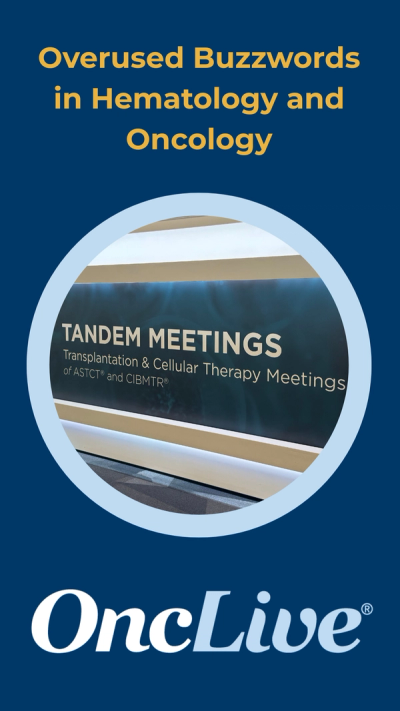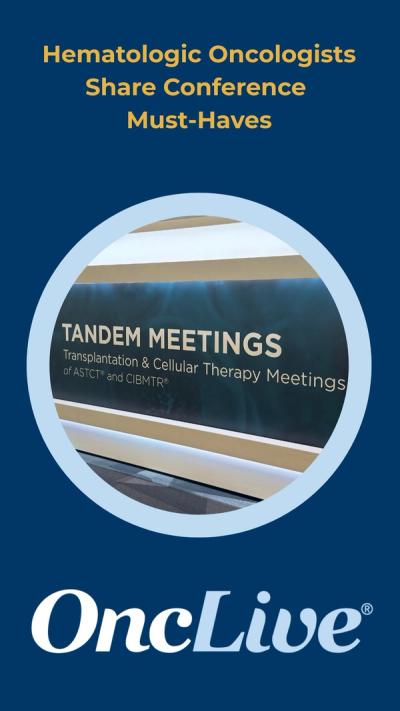
Conference Coverage
Latest Content

The OncFive: Top Oncology Articles for the Week of 2/1

Outcomes With Bridging Therapy Correlate With Cilta-Cel Efficacy, Safety in Multiple Myeloma

Real-World Data Support Clinical Benefit With Lifileucel in Previously Treated Advanced Melanoma

Single-Center, Retrospective Data Show Low Rate of Lifileucel Infusion Following Referral in Advanced Melanoma

Long-Term Cilta-Cel Data Show Low Rates of PFS Events in Standard-Risk R/R Myeloma

OncLive TV
Shorts










Podcasts
Continuing Medical Education
All News

Philippos Costa, MD, and Hari Deshpande, MD, discuss chondrosarcoma staging, diagnosis, surgery, and future research avenues in this clinician-focused FAQ.

Adoptive cell therapy elicited MRD-negative responses with low rates of GVHD and neurotoxicities in adult patients with high-risk B-ALL.

The FDA updated axi-cel labeling to remove the limitation of use for patients with relapsed or refractory primary central nervous system lymphoma.

Johannes R. Kratz, MD, has been named as the inaugural Chief of UCSF’s Division of Thoracic Surgery.

OS Therapies began a rolling submission of a BLA for OST-HER2 in fully resected pulmonary metastatic osteosarcoma.

A real-world cilta-cel study revealed a link between high lymphocyte peaks and failed bridging to parkinsonism and nonrelapse mortality, potentially guiding early intervention.

Frontline Retifanlimab Approaches EU Approval for Advanced Squamous Cell Carcinoma of the Anal Canal
EMA CHMP recommends first-line retifanlimab plus carboplatin/paclitaxel for advanced anal cancer, backed by phase 3 P0D1UM-303 data.

With an additional 16.1 months of follow-up, the dual HER2-targeted, chemotherapy-free regimen maintained efficacy and safety in HER2-positive mCRC.

Orca-T/reduced-intensity conditioning was effective and decreased GVHD incidence vs PTCy/reduced-intensity conditioning in hematologic malignancies.

The FDA issued a reminder to increase awareness regarding updated capecitabine and 5-FU labels to highlight DPD deficiency risks.

Part 2 of the ongoing phase 2/3 HARBOR study is evaluating elenestinib in patients with indolent systemic mastocytosis.

Real-world data confirm the importance of tumor debulking with bridging therapy to reduce the risk of parkinsonism and NRM with cilta-cel in myeloma.

Ustekinumab plus prophylaxis did not reduce acute GVHD in patients who underwent HCT from matched unrelated donors.

No serious adverse effects were observed with TRX103 in patients with hematologic malignancies undergoing HLA-mismatched HCT.

The FDA-approved drug abatacept may improve treatment responses and prevent some immune AEs associated with CAR T-cell therapy.





















































